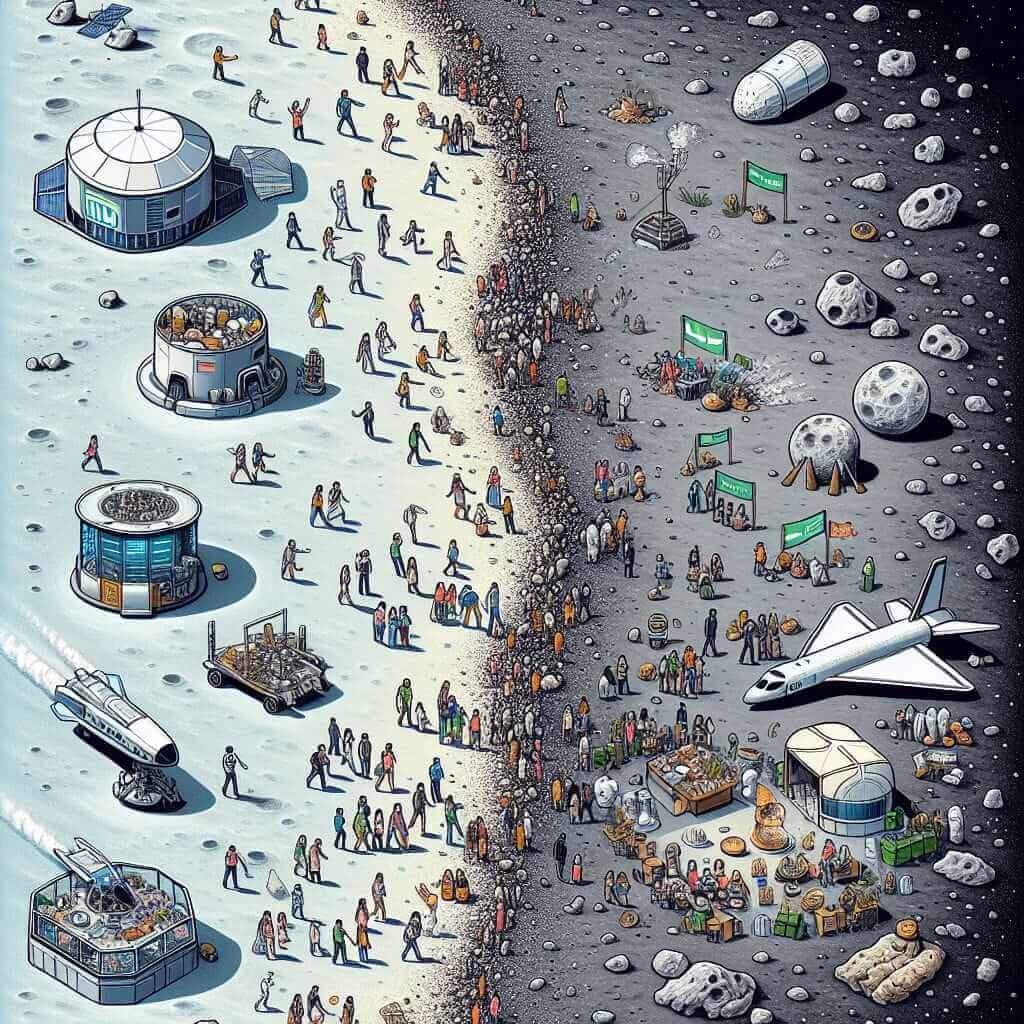The Reading section of the IELTS exam aims to evaluate a candidate’s ability to understand and interpret written English across a range of contexts. One prevalent theme analyzed in past exams is environmental sustainability, making it a valuable topic for prospective candidates to study. Space tourism is an emerging field that poses new questions and concerns, especially related to environmental sustainability. This article delves into the implications of space tourism on environmental sustainability, offering an informative reading passage, questions, and detailed analysis to help you prepare for the IELTS Reading section.
Past data and trends show that environmentally-focused topics frequently appear in IELTS exams. Given the ongoing advancements and interest in space tourism, this subject is timely and highly probable for future examinations.
Reading Passage
Space Tourism and Environmental Sustainability
Space tourism, once a vision confined to the realms of science fiction, is rapidly becoming a reality. Companies like SpaceX, Blue Origin, and Virgin Galactic are pioneering this venture, promising extraordinary experiences for affluent travelers. However, the environmental implications of space tourism are a burgeoning concern for scientists and environmentalists alike.
One of the primary environmental impacts of space tourism is the high volume of greenhouse gas emissions. Rockets used for space travel burn large quantities of fuel, releasing carbon dioxide and water vapor directly into the upper layers of the atmosphere. This not only contributes to global warming but could also influence atmospheric chemistry, potentially damaging the Earth’s ozone layer.
Moreover, the environmental footprint extends beyond the emissions. The manufacturing and maintenance of rockets and other space infrastructure necessitate substantial resources and energy. This includes the extraction of rare minerals, leading to habitat destruction, and the vast amounts of electricity consumed in rocket production facilities.
Another significant concern is space debris. With an increase in satellite launches and space missions, the amount of debris orbiting the Earth has escalated. These remnants pose risks not only to future space missions but also to the Earth’s environment. As these pieces of debris re-enter the atmosphere, they can generate pollution and pose hazards to both wildlife and human populations.
Interestingly, some proponents argue that space tourism could spur advancements in technology that may benefit the environment. For instance, innovations in sustainable rocket fuels and reusable rocket technology could potentially minimize the environmental impact of space travel over time. Furthermore, increased interest and investment in space exploration might shift focus to developing technologies for environmental preservation on Earth.
The question remains whether the benefits of space tourism can outweigh its environmental costs. With space agencies and private companies ardently pushing the boundaries, a comprehensive regulatory framework is essential to mitigate its adverse effects. Only with coordinated global efforts can we ensure that the foray into space tourism does not compromise our planet’s environmental sustainability.
Comprehension Questions
True/False/Not Given
- The carbon emissions from rockets are a minimal concern for environmentalists.
- The production of rockets requires significant energy and resource consumption.
- All space tourism companies are currently prioritizing sustainable practices.
Matching Information
- Match the following descriptions to the correct paragraphs:
- a. Environmental footprint of rocket manufacturing
- b. The prospect of improved technologies
- c. Impacts of space debris
Multiple Choice
- What is one potential benefit of space tourism mentioned in the passage?
- A. Decreasing global emissions
- B. Advancements in sustainable fuels
- C. Reduction in space debris
- D. Immediate economic benefits
Short Answer Questions
- How might space debris negatively impact the Earth?
- What regulatory measure is suggested to mitigate the impact of space tourism?
Answer Keys and Explanations
True/False/Not Given
- False – The passage states that greenhouse gas emissions from rockets are a significant concern.
- True – The passage mentions that rocket production requires substantial resources and energy.
- Not Given – The passage does not specify if all companies are prioritizing sustainable practices.
Matching Information
-
- a. Paragraph 3 (resource consumption and manufacturing)
- b. Paragraph 6 (possibility of better technology)
- c. Paragraph 5 (space debris impact)
Multiple Choice
- B – The passage suggests that advancements in sustainable rocket fuels could be a potential benefit.
Short Answer
- Space debris can generate pollution and pose hazards to both wildlife and human populations when it re-enters the atmosphere.
- Implementing a comprehensive regulatory framework is suggested to mitigate the adverse effects of space tourism.
Common Errors to Avoid
When tackling reading passages, students often misinterpret questions or overlook key details in the passage. Always go back to the text to find evidence for your answers and make sure your responses directly address the questions.
Vocabulary
- Affluent (adj.) /ˈæfluənt/: Wealthy
- Burgeoning (adj.) /ˈbɜːrdʒənɪŋ/: Beginning to grow or increase rapidly
- Emissions (n.) /ɪˈmɪʃənz/: The production and discharge of something, especially gas or radiation
- Regulatory (adj.) /ˈrɛɡjələtɔːri/: Relating to the enforcement of rules or laws
Grammar Focus
- Comparative structures: “The environmental footprint extends beyond …”, Using comparative structures appropriately to compare the extent of different impacts.
- Passive voice: “is rapidly becoming a reality”, Properly using passive voice for formal tone and focus on the action rather than the subject.
Final Advice
To excel in the IELTS Reading section, consistent practice is crucial. Pay close attention to detail, expand your vocabulary, and practice different types of questions. Make a habit of reading diverse topics to improve comprehension and speed. Remember, accuracy is just as important as time management.

Happy studying, and best of luck with your IELTS preparation!